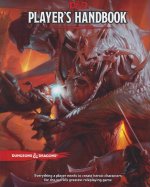James Gasik
We don't talk about Pun-Pun
I understand that's a popular opinion, but it does leave us with the problem of classes like the Fighter being judged by a different metric than the majority of classes in the game. You can cut down on the spells that casters have, but the magic classes are also allowed to have special features that are simply better than what a Fighter can have*, because they can be handwaved away with "magic".In D&D all that would be magic. Maybe not spellcasting, but certainly supernatural/magical. People that want to play martials, at least many of them, specifically don't want they kind of fluff tied to their character.
*Barring, of course, those Fighter subclasses which are allowed to have magical abilities, such as the Eldritch Knight, or the Rune Knight.
So your choices are to either heavily modify the majority of classes or ban them outright, completely altering the game's balance, create your own game (or find one that more accurately depicts men-at-arms and wand wigglers to your liking), or adjust your paradigm for what a non-caster can be.
It's no easy task, and you'll find noticeable resistance because many D&D players and DM's like magic and magical characters. They feel such things are an integral part of D&D...but as long as some characters are held to this different standard, there will be imbalance because your two design metrics are "anything goes fantasy" and "guy at the gym".
I sincerely hope you find the balance you are looking for, but "6th level casters" might not be it, because the game is written to assume higher level spellcasters exist and that you will have people playing them.
Can the "all-martial" campaign exist? I'm told it can, and I have no reason to not believe it, but I feel you have to make adjustments on the back end when writing adventures and using monsters to make it work. Use magical enemies rarely, and avoid status effects and challenges that are easily solved by the magic the players possess.
If you're having to make all these changes to get the game you want, I think you've gone beyond something a simple houserule can patch.
But I'd be happy to be proven wrong.




